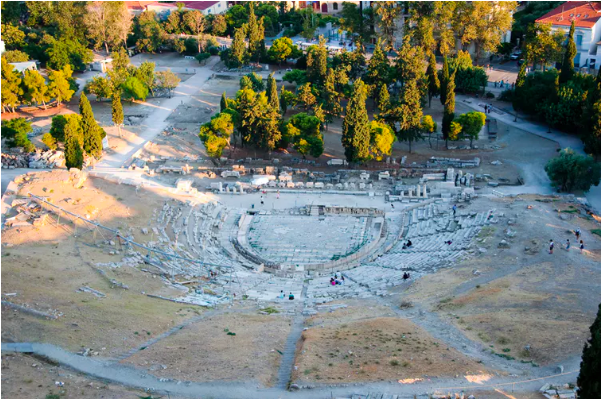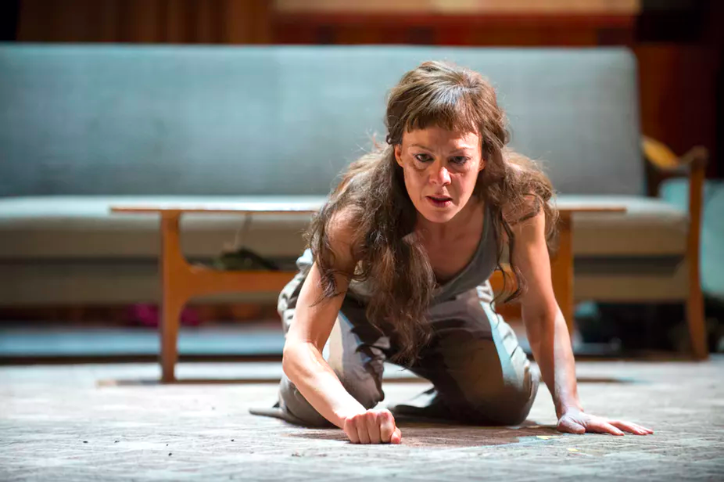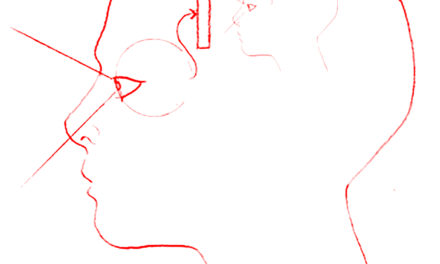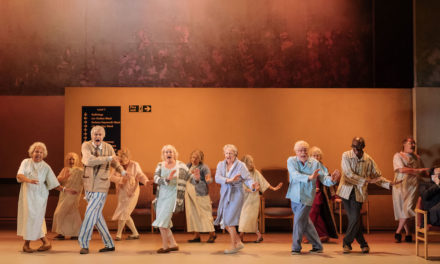The September 4 live transmission of Euripides’ Medea will have brought an ancient Greek tragedy to thousands of viewers. And it’s quite a play. Spurned by her husband Jason, Medea commits unspeakable crimes–killing her own children to punish those who harmed and humiliated her. It’s strong stuff. The vengeance of Medea has resonated across the centuries and been performed and screened in many different cultural contexts–Euripides’s play never fails to inspire pity and fear.
This wasn’t the first time that a stage version of the tragedy has reached a mass audience. It was first performed in Athens in 431 BCE to around 15,000 people in the open air Theatre of Dionysus. The citizens of Athens would still have been recovering from a day or two of drinking and the novelty of meat eating as they settled down to watch three days of disturbing dramas, which were then judged. People traveled from all over the Greek world to be part of the celebrations. The tragedies were the culmination of the entertainments in the five day Spring Festival of Dionysus, god of wine.
We can’t be sure whether women or slaves were present in the theatre, but in any case, the male spectators were really the target audience. Most of the audience would be some distance from the stage so gesture and voice had to be larger than life. There was musical accompaniment (the chorus was choreographed) and the costumes could be colorful, even exotic. Attending a Greek play would have been more like going to a Kate Bush concert than the theatrical, high-end experience it is now.
The Athenian dramatists were just as interested as present-day producers and movie makers in pulling in the crowds. Successful plays meant prizes, a crown of ivy, and there may have been a monetary reward for the winning tragedy. And passions ran high in the competitive process: laws had to be passed to punish anyone trying to bribe or menace the judges of the competition or sabotage the costumes of a rival chorus.

The remains of the Theatre of Dionysus. lornet/Shutterstock
So the festival was emotionally charged in a number of ways. Dionysus was the god who loosened inhibitions and sanctioned temporary transgressions so the celebrations were full on. Many of the spectators at the dramas would also have themselves been performing dithyrambs, myths in song and dance that involved 50 strong choruses of citizens. This large-scale participation must have intensified the heady mixture of revelry and reverence, of piety and partying.
And the arts then, as now, played a big part in politics. So Athens put on quite a show every year. War orphans were wheeled out on stage at the start of proceedings. Athenian wealth was displayed, a pile of treasure of the financial tributes from the allies of Athens. These funds demanded for the defense of Greek cities against Persia, had also been used to beautify the city.
In 431 BCE Athens was preparing for a conflict with other Greek states. The Peloponnesian War was about to start in earnest. Medea and other plays in the program may have attracted fewer foreign visitors, and many Athenian citizens were already on active service. But there would still have been a large audience, many of whom probably still had hangovers even though the preceding day of comedies was supposed to have given them time to sober up.
So in a way, this broadcast of the National Theatre production has given Greek tragedy back to the masses. But such screenings haven’t quite returned the genre its roots in popular culture–it is still very much considered difficult, elite. And we won’t be watching in the open air with everyone on show, but in the dark, divorced from reality, and each other. This might intensify the experience of the play for the cinema audience, perhaps to a level more than those actually present at the play.
It’s not yet a blockbuster. And while people might take food and drink into the screening I doubt if many will be feeling as festive as the original classical audience were as they watched the tragedy unfold. In comparison, our cinema screenings should be pretty decorous.
This post originally appeared on The Conversation on September 5, 2014, and has been reposted with permission.
This post was written by the author in their personal capacity.The opinions expressed in this article are the author’s own and do not reflect the view of The Theatre Times, their staff or collaborators.
This post was written by Paula James.
The views expressed here belong to the author and do not necessarily reflect our views and opinions.


















